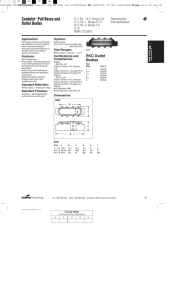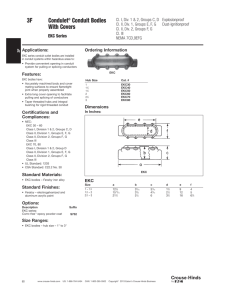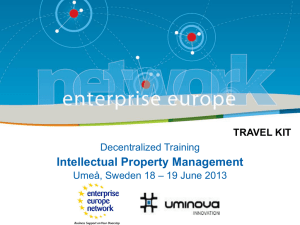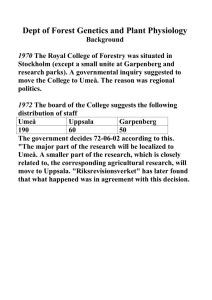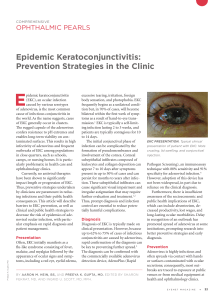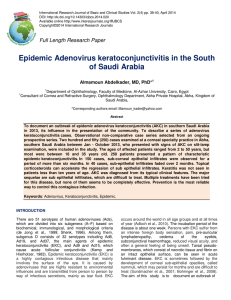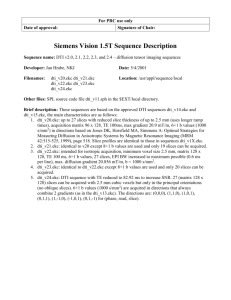DOCX - Adenovir Pharma AB
advertisement
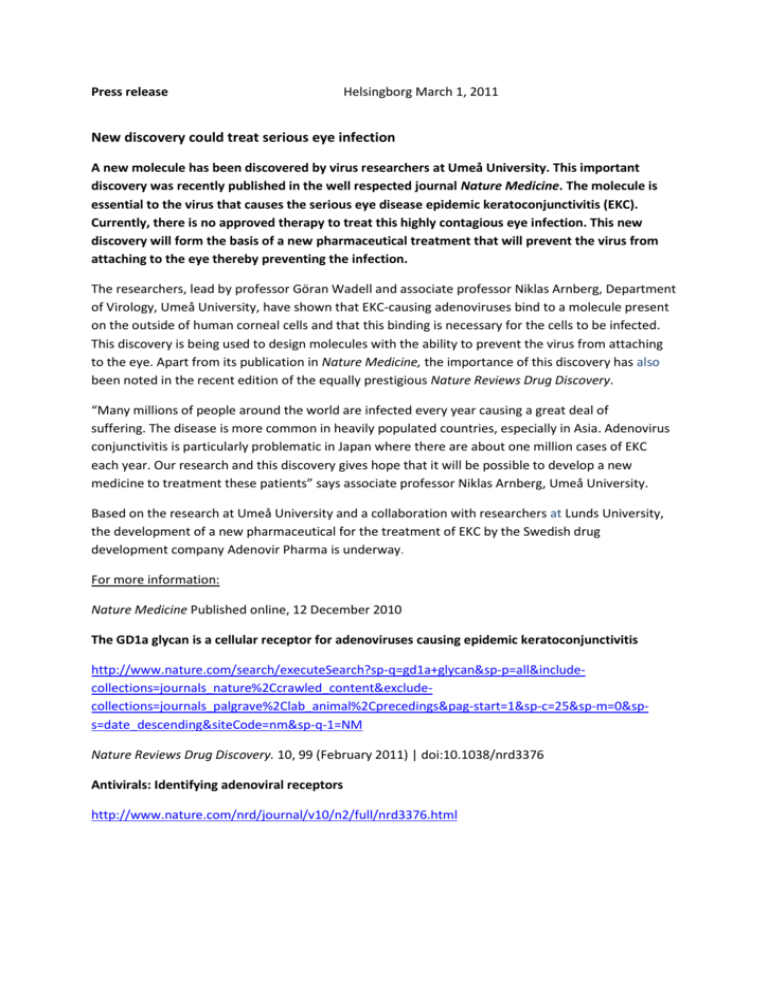
Press release Helsingborg March 1, 2011 New discovery could treat serious eye infection A new molecule has been discovered by virus researchers at Umeå University. This important discovery was recently published in the well respected journal Nature Medicine. The molecule is essential to the virus that causes the serious eye disease epidemic keratoconjunctivitis (EKC). Currently, there is no approved therapy to treat this highly contagious eye infection. This new discovery will form the basis of a new pharmaceutical treatment that will prevent the virus from attaching to the eye thereby preventing the infection. The researchers, lead by professor Göran Wadell and associate professor Niklas Arnberg, Department of Virology, Umeå University, have shown that EKC-causing adenoviruses bind to a molecule present on the outside of human corneal cells and that this binding is necessary for the cells to be infected. This discovery is being used to design molecules with the ability to prevent the virus from attaching to the eye. Apart from its publication in Nature Medicine, the importance of this discovery has also been noted in the recent edition of the equally prestigious Nature Reviews Drug Discovery. “Many millions of people around the world are infected every year causing a great deal of suffering. The disease is more common in heavily populated countries, especially in Asia. Adenovirus conjunctivitis is particularly problematic in Japan where there are about one million cases of EKC each year. Our research and this discovery gives hope that it will be possible to develop a new medicine to treatment these patients” says associate professor Niklas Arnberg, Umeå University. Based on the research at Umeå University and a collaboration with researchers at Lunds University, the development of a new pharmaceutical for the treatment of EKC by the Swedish drug development company Adenovir Pharma is underway. For more information: Nature Medicine Published online, 12 December 2010 The GD1a glycan is a cellular receptor for adenoviruses causing epidemic keratoconjunctivitis http://www.nature.com/search/executeSearch?sp-q=gd1a+glycan&sp-p=all&includecollections=journals_nature%2Ccrawled_content&excludecollections=journals_palgrave%2Clab_animal%2Cprecedings&pag-start=1&sp-c=25&sp-m=0&sps=date_descending&siteCode=nm&sp-q-1=NM Nature Reviews Drug Discovery. 10, 99 (February 2011) | doi:10.1038/nrd3376 Antivirals: Identifying adenoviral receptors http://www.nature.com/nrd/journal/v10/n2/full/nrd3376.html About epidemic keratoconjunctivitis (EKC). External ocular infections caused by adenoviruses are among the most common eye infections seen worldwide and conjunctivitis represents a large proportion of visits to ophthalmologists. Epidemic keratoconjunctivitis (EKC) caused by adenoviruses is a serious, highly contagious disease that is common worldwide. EKC affects millions of people every year. EKC occurs sporadically and epidemically and is endemic in many regions. The economic and social costs of community epidemics are high. Work places, public institutions, such as schools and childrens’ day care centres, must be closed following the outbreak of an epidemic. Many work hours are lost every year as a consequence of the disease. It has gained recognition as a major health problem in these regions. A pharmaceutical therapy that could be used to treat EKC as well as to prevent its spread would be highly desirable for patients, those who come into contact with patients, and treating physicians. Currently there is no approved treatment and patients with EKC get no medical therapy other than for symptomatic relief. About Adenovir Pharma AB Adenovir Pharma AB is a project company within P.U.L.S. based in Helsingborg, Sweden. The company has a proprietary technology for developing new anti-viral pharmaceutical solutions for the treatment of infectious diseases affecting the eyes. The initial development has been conducted by professor Olov Sterner and professor Ulf Ellervik at the University of Lund, Department of Organic Chemistry, in collaboration with researches at the University of Umeå and in collaboration with P.U.L.S. AB and external service providers specialized in drug development. www.adenovir.com Contact information For further information about the research at Umeå University, contact associate professor Niklas Arnberg. Telephone: +46 90 785 8440 Email: niklas.arnberg@climi.umu.se For further information about Adenovir Pharma AB, contact project leader Björn Dellgren. Telephone: +46 42 38 74 17, mobile: +46 707 455 005. Email: bjorn.dellgren@adenovir.com

